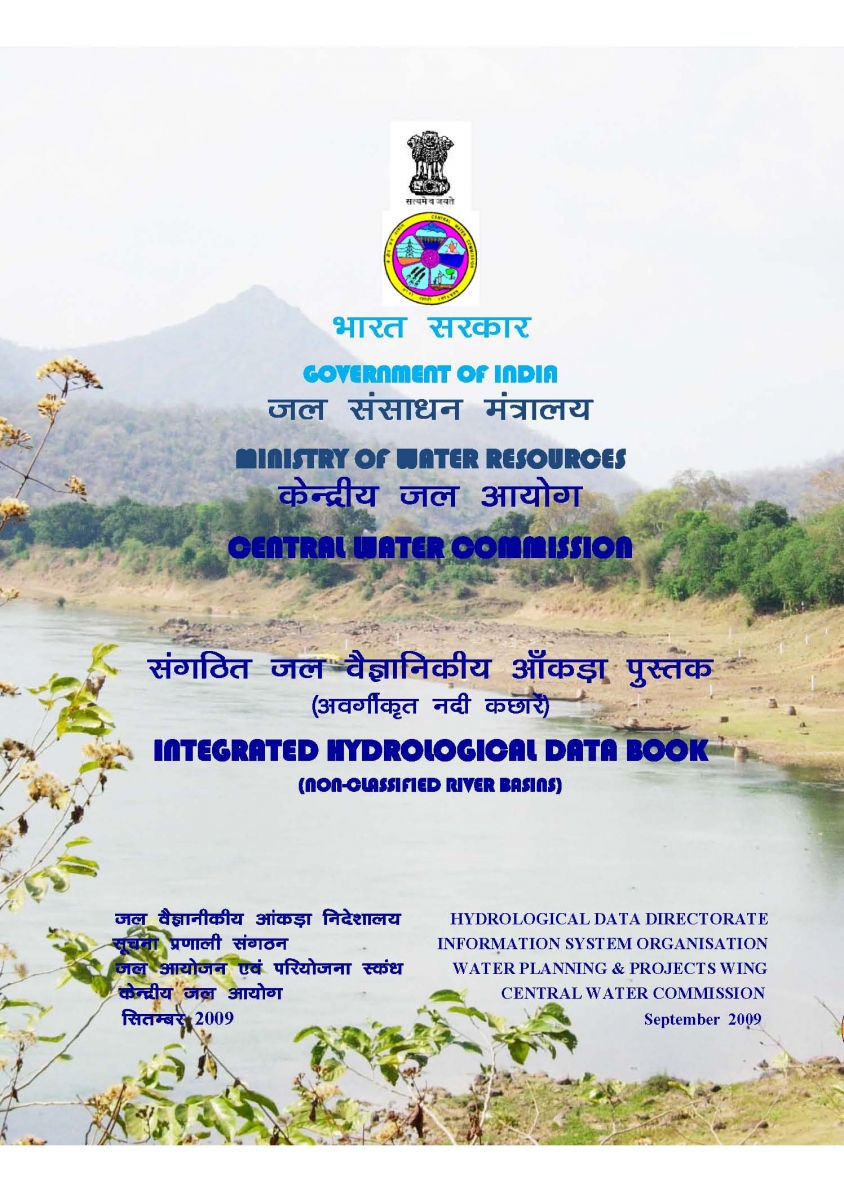/sub-categories/news-and-articles
News and Articles
A discussion on water
Posted on 03 Aug, 2010 03:15 PMWater is the base of life as we all know but a very interesting fact comes in my mind that what should be the full form of water. If one's define it there comes a better sentence. Let's we know it's full form.
W-when
A-atmosphere
T-threatens
E-earn
R-revenue
UN affirms the right to safe and clean drinking water
Posted on 02 Aug, 2010 02:56 PMA remarkable piece of water history should have been headline news everywhere this week.
Deaths due to water pollution
Posted on 02 Aug, 2010 02:38 PMDeaths due to water pollution occur mainly as a consequence of drinking of contaminated water. The common diseases caused by consumption of contaminated water are Cholera, Viral Hepatitis, Enteric Fever (Typhoid) and Acute Diarrhoeal Diseases (ADD).
The number of deaths reported State-wise on account of Cholera, Viral Hepatitis, Enteric Fever (Typhoid) and Acute Diarrhoeal Diseases (ADD) for the years 2007, 2008 and 2009 are given in Annexure – I-III.
Myths about small water harvesting systems - EPW paper
Posted on 02 Aug, 2010 01:17 AMThis article is written in response to an earlier published article “Chasing a Mirage: Water Harvesting and Artificial Recharge in Naturally Water-Scarce Regions” in the Economic and Political Weekly and argues that the paper makes a number of assertions about small water harvesting systems, that are based on faulty assumptions and inadequate information.
Climate change in India: Forgotten threats, forgotten opportunities - EPW paper
Posted on 02 Aug, 2010 01:12 AMThe document begins by commenting on the position taken by India in the global climate change discourse. India has consistently argued from the point of view of developing countries against restrictions on emissions that have been imposed on all countries globally, by stating that developing countries have started the industralisation processes recently and thus have contributed very little to the carbon emissions.
Thus, countries like India should not sacrifice their present development and growth for reducing global emissions. Any legitimate climate mitigation initiative should be just, equitable and secure developing countries' growth patterns.
The document argues that although India 's stand seems justifiable in the global discourse, the climate change issue is still a very sensitive one for India and India has the greatest to lose if it does not take proactive steps to deal with the issue of climate change in the future.
Salvaging and scapegoating: Slum evictions on Chennai’s waterways - EPW paper
Posted on 02 Aug, 2010 01:03 AMThe paper highlights the case of recent projects that have been planned on the river Cooum in Chennai.
Water distribution improvement "World Bank style" in K-East Ward Mumbai - A working paper by CASUMM
Posted on 01 Aug, 2010 03:43 PMIn this document by CASUMM, the author raises important questions regarding the recent trends towards privatisation of water supply in Indian cities by discussing the case of the water supply scheme project in the K-east ward of Mumbai.
The privatisation of the water supply scheme, which has been implemented through grants by the World Bank (WB) raises serious questions regarding the intentions of the international organisations that fail to take into consideration the local context and the needs of the people and focus exclusively on profit making.
Water challenges in Greater Bangalore - NIAS-CASUMM workshop note (2007)
Posted on 01 Aug, 2010 03:36 PMThis document provides the background for a workshop on 'Water Challenges in Greater Bangalore', organised by NIAS and CASSUM at the National Institute of Advanced Studies (NIAS), Indian Institute of Science (IISC) campus on March 27, 2007.
The document highlights the current scenario of privatisation of water services that are being funded by international financial institutions under the water sector reforms in the city of Bangalore, which have had a very negative impact on the urban poor, who continue to face the problem of inadequate, unreliable and unsafe water supply as compared to other posh and water rich areas in the city.
Integrated Hydrological and Water Data Books - Central Water Commission (2005-09)
Posted on 01 Aug, 2010 12:52 AM Integrated Hydrological Data Books are a compendium of important hydrological information of twelve non-classified basins (i.e., other than Ganga and Brahmaputra) consolidated at the national level by the Central Water Commission (CWC).
Integrated Hydrological Data Books are a compendium of important hydrological information of twelve non-classified basins (i.e., other than Ganga and Brahmaputra) consolidated at the national level by the Central Water Commission (CWC).
It covers basic hydrological data on gauge, discharge, silt, sedimentation and water quality collected on a regular basis by the CWC regional field offices, who document it in the form of a Water Year Book, Sediment Year Book and Water Quality Year Book. These along with the relevant land use statistics collected by the Ministry of Agriculture are integrated into this Data Book.
The information is of use to planners, researchers, policy makers and the public at large.
Ground Water Management and Ownership: Report of the Expert Group - Planning Commission (2007)
Posted on 31 Jul, 2010 03:52 PMThe report of the Expert Group on Ground Water Management and Ownership (2007) of the Planning Commission takes stock of the availability and use of groundwater and outlines the extent, causes and consequences of groundwater exploitation. It suggests the need for exploiting the untapped ‘static’ water, which if untapped creates stagnant conditions and over time provides the necessary time factor for the deterioration in quality. The rising demand for groundwater from agriculture has been attributed to the legal/regulatory regime governing groundwater and partly to the minimum support price policy and agricultural trade policy currently being followed.